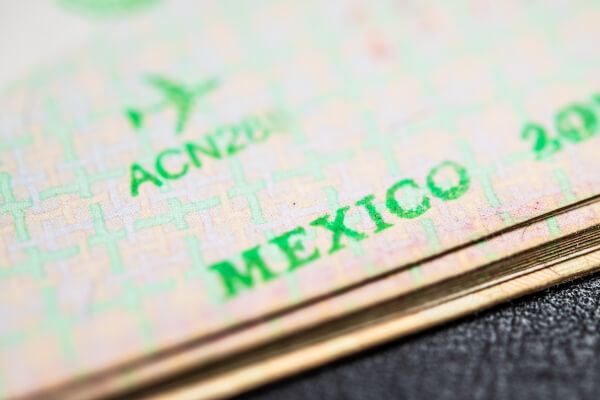How to Hire Independent Contractors in Mexico | Legal Guide & Best Practices
Learn how to hire and pay independent contractors in Mexico. This article also includes an FAQ and best practices about working with contractors in Mexico.

Spain is a popular holiday destination in Europe, and for good reason. Year-round sun, beautiful beaches, and the laid-back lifestyle are the reasons many Americans have come to call Spain their home.
Yet for many, starting life out in Spain coincided with a business venture. Since there can be a lot of red tape for Americans working in Spain outside of teaching roles where they may be preferential, starting a business is an excellent way to set up a new life in Spain.
This blog post will walk you through how to start a business in Spain.
Setting up a business in Spain is easier for Europeans than Americans, due to the free movement principle afforded to European citizens. However, it’s certainly possible for Americans to do so following the right guidance.
First, you must prove that yojnright to live and work in Spain. To this end, you’ll need to obtain your Número de Identificación de Extranjero (NIE) within the first 90 days of arriving in the country.
The NIE will become your unique Spanish tax identification number. You need it to pay your taxes, and complete bureaucratic processes such as buying a property, renting, and opening a bank account.
You can apply for the NIE from the US, too, at your local Consular Office to streamline the process of getting set up in Spain.
As well as a NIE, you’ll also need to acquire a valid visa and a valid work permit.
If you wish to start trading in your business when you land in Spain, you’ll need to get a work permit to prove you can legally operate in the country.
To secure this work permit, you can either apply for one at your nearest Spanish embassy or consulate.
You’ll fill out an application form, and will need to supply the following documents:
You’ll have to renew your work permit and prove you still fulfill all these conditions every year you’re in Spain.
After five years, you can apply for permanent residency in Spain under the EU regime for non-EU nationals, which means you can remain in the country indefinitely without further need for visas or permits.
Certain professions and types of business - lawyers, architects, healthcare professionals and financial services, to name a few - are heavily regulated.
You’ll need to make sure you comply with the relevant rules and regulations before you can start trading.
Often, the process will involve getting your qualifications officially accredited or recognised (called homologación ). Depending on your profession or the type of business you plan to carry out, you may also need to apply for a license.
Rules may vary from region to region, so it’s a good idea to check out both national rules and the rules of the region you intend to base your business in ahead of time.
Try our Business Name Generator tool to generate ideas for your company name.
Once your personal legal status is in order, it’s time to decide your business’s legal form. In Spain, you have three main options:
Let’s have a look at what each involves.
Operating as a sole trader is one of the most affordable and most flexible ways to start doing business in Spain, especially if you’re the only person in your business.
It’s also the simplest type of business to set up.
In order to start operating as a sole trader in Spain, you’ll need to do three things:
You can register for tax by visiting your nearest Agencia Tributaria tax office with your valid, unexpired passport and your NIE.
You’ll be asked to fill in a form (Modelo 036 or 037, depending on your circumstances) and given a tax certificate, called the IRPF, which you should keep in a safe place.
When you register with the Spanish tax authorities as self-employed, you’ll have two options:
As a freelance professional, your clients retain a percentage of your invoice which starts at 7% for the first 3 years before increasing to 15%, and pay it to the tax authorities on your behalf as an advance on your tax payments. These amounts are then credited when you fill in your annual tax return.
The system doesn’t apply if you’re a sole trader.
In addition to registering for tax, you must also register for social security under the special regime for autonomous workers (RETA) within 30 days of registering with the tax authorities.
In order to register, you’ll need the following:
You’ll need to fill out a form to complete the process.d
If you live and work in Spain and make social security contributions, you’re entitled to free healthcare.
Although, as a self-employed person, you’ll need to join a health insurance fund ( mutua ) via the social security authorities. Your health plan will also cover any dependent family members living at your address.
Whether you’re a sole trader or a freelance professional, you’ll need to file a personal income tax return (I.R.P.F.) each year, as well as quarterly VAT (IVA) returns.
You’ll also need to keep copies of invoices and receipts for all expenses you intend to deduct on your annual return.
Depending on the type of business and the region you live in, you may also have other periodic filing requirements. It’s best to consult with a lawyer or accountant, as failing to comply with these requirements will often result in fines and other penalties (including criminal liability).
If you plan to go into business with one or more people, but you still want your structure to be flexible, you can run your business as a partnership.
Like sole traders, partnerships don’t require a minimum investment to be set up and come with less of the formalities you’d expect when setting up a limited company.
However, the process is generally longer and more costly.
There are two types of partnership in Spain: general partnership ( sociedad general ) and limited partnership (sociedad comanditaria).
Each type of partnership has its own special requirements and comes with different rights and responsibilities. Whichever you choose, you’ll need to do the following to set one up:
A partnership agreement isn’t strictly required. However, it’s good to have, as it regulates the relationship between you and your business partners and outlines your responsibilities. This is especially helpful if things go wrong, or you have a disagreement.
Out of the three legal forms available, a limited company is the most complex, formal and expensive to set up and run.
Running a limited company affords you limited liability and more favorable taxation (if you earn more than a certain amount). Some types of business must be run as a limited company by law.
In Spain there are six types of limited company you can choose from.
The main differences between them are the minimum number of shareholders required and the minimum amount of money you have to invest.
Limited company formation: A step-by-step guide
Whichever type of limited company you choose, you’ll need to follow these steps:
Setting up a company is a complicated process; and Spanish law may differ substantially from the laws of your own country. It’s very important to consult with a professional.
A company lawyer or accountant can help you decide if forming a company is right for you, advise you on the exact requirements and help you throughout the process.
Once you’re sure setting up a company is right for you, you need to check if the name you’ve chosen is available. You’ll also need to obtain a certificate to confirm this from the Mercantile Registry.
On average, it takes three days to get an answer.
A company is a legal person in its own right, so you’ll need a tax identification code that’s specific to it.
You can apply for a CIF by downloading the form from the Agencia Tributaria’s website. You’ll need to return the form at your local tax office in person, together with the original and a copy of your NIE.
Next, you’ll need to open a business bank account in the name of your new company and deposit the minimum investment amount. This will vary depending on the type of company you have chosen.
As a US citizen, you’ll need to provide extra documentation to open a bank account, including proof of residency and a valid work permit.
Once that’s done, ask your bank to give you a certificate that proves you’ve made the payment.
The deed of incorporation is the document that sets up your company. It includes information such as the name of your company, its official address, the nature of your business, names and addresses of all shareholders, names and addresses of its officials (directors, company secretary and key officers) and so on.
It will also have information on how the company is run.
The deed must be published by a notary and is accessible to the public. You’ll also need to give the notary originals and copies of your tax forms, certificate of uniqueness, NIE and bank certificate.
In order to register your new company, you’ll need to do three things.
As a director, you’ll need to register with the social security authorities on behalf of the company.
This involves a visit to your local office with originals and copies of your deed of incorporation, NIE, tax forms and form TA0521.
Finally, you’ll need to take care of some other minor formalities. These include:
| Sole Trader | Partnership | Limited Company | |
|---|---|---|---|
| Setup | Easy | Moderate | Hard |
| Deed | Not necessary | Optional but recommended | Obligatory. Must be notarized. |
| Tax | Personal | Personal | Corporate |
| Minimum Investment | No | No | Yes. Variable, depending on type of company. |
| Formalities | Low. Quarterly returns. Some additional formalities may apply. | Moderate. Depends on the type of partnership chosen. | High. Regular monthly, quarterly and annual filings. Must hold regular meetings and keep minutes. |
If you run a business in Spain, you’re liable to pay taxes. As a US citizen living and working in Spain, you’ll need to manage taxes from both countries.
When filing your taxes, you’ll need to report all of your income earned in Spain on your US tax return as you file your annual Form 1040.
Fortunately, Spain and the United States have a Double Taxation Treaty which means you won’t be taxed twice on the same income.
Furthermore, you may qualify for the Foreign Earned Income Exclusion (FEIE), which means you can ¹exclude up to $120,000 of foreign-earned income from your US taxes provided you satisfy the conditions for the physical presence or bona fide residence test.
You must also file a ²Foreign Bank Account Report (FBAR) if you have more than $10,000 in foreign financial accounts.
Your tax liability in Spain will depend on whether you’re a sole trader, a partnership or a company.
As a sole trader, you pay your taxes in one of two ways, depending on whether you’re an empresa individual or an autonomo.
If you’re an empresa individual, you’ll need to pay tax on a quarterly basis under the IRPF at a rate of ³19% for the first EUR 6,000 of taxable income. From there, there’s a progressive rate increasing to 24%, 30%, and up from there, as your income rises above various brackets.
On the other hand, if you’re an autonomo, the retention system (explained previously) applies, and clients will retain a percentage of your invoice and pay it to the tax authorities on your behalf.
Either way, you’ll have to file a tax return at the end of each financial year. This is the same tax return filed by any Spanish citizen or resident. Your return should include all your income for the year (whether from your business or otherwise) and any allowances and deductions.
The minimum personal tax allowance will depend on various factors such as:
You can deduct business expenses if they are entirely business-related, recorded in your accounting books and backed up with invoices or receipts.
Once you complete your return, you’ll either have to pay more tax or qualify for a refund, depending on how much you paid upfront during the year.
Each partner is responsible for paying their own income tax.
You’ll need to declare your partnership income in your personal tax return, and the same allowances and deductions will apply as if you were a sole trader.
Limited companies pay corporation tax. You have to pay Spanish corporate income tax on all the company’s income worldwide.
Tax is due on your company’s net profits, after all allowable deductions are made.
These include:
⁵The general rate of tax is 25%. However, newly formed companies pay 15% tax on the first €300,000 and 20% on the remainder for the first two years.
Unless you run a VAT-exempt business (teaching, for example), you’ll need to register for VAT. This applies whether you’re a sole trader, a partnership or a company; and no matter how little money you make.
In Spain, ⁶VAT is charged at 21%. However, some types of goods and services may attract a lower rate of 10% or even 4%.
You’ll need to submit periodic VAT returns, as well as an annual return. You’ll also need to comply with specific accounting and invoicing requirements.
If you’re a sole trader or a member of a partnership, you’ll need to make your own social security contributions. These payments will entitle you to free healthcare.
You’ll also get a pension if you pay social security for at least 15 years.
The most recent system for social security contributions means self-employed persons will pay contributions according to their level of income, which breaks out into 15 economic brackets.
Companies are also obliged to make social security contributions. One director must register with the RETA and make contributions on the company’s behalf.
If you’re an employer, you have to make social security contributions on behalf of your employees. These contributions currently amount to 29.9% of an employee’s gross salary, plus a variable rate to cover occupational hazards.
You’ll also need to deduct taxes and social security contributions from your employees’ salaries.
If you’re looking to build a business with employees other than yourself in Spain, here’s what you need to know:
There’s a 40-hour work week in Spain and salaries are paid out over the course of 12 payments as common in the United States, or 14 payments during the year - with July and December representing double payments.
Employees should receive 30 calendar days of vacation annually.
The minimum wage in Spain is ⁷€1,134 a month on the 14 payment scheme and €1,323 a month on the 12 payment scheme, having risen considerably in recent years.
Wise Business can help you save big time on international payments.
Wise is not a bank, but a Money Services Business (MSB) provider and a smart alternative to banks. The Wise Business account is designed with international business in mind, and makes it easy to send, hold, and manage business funds in currencies.
Signing up to Wise Business allows access to BatchTransfer which you can use to pay up to 1000 invoices in one go. This is perfect for small businesses that are managing a global team, saving a ton of time and hassle when making payments.
Some key features of Wise Business include:
Mid-market rate: Get the mid-market exchange rate with no hidden fees on international transfers
Global Account: Send money to countries and hold multiple currencies, all in one place. You can also get major currency account details for a one-off fee to receive overseas payments like a local
Access to BatchTransfer: Pay up to 1000 invoices in one click. Save time, money, and stress when you make 1000 payments in one click with BatchTransfer payments. Access to BatchTransfer is free with a Wise Business account
Auto-conversions: Don't like the current currency exchange rate? Set your desired rate, and Wise sends the transfer the moment the rate is met
Free invoicing tool: Generate and send professional invoices
No minimum balance requirements or monthly fees: US-based businesses can open an account for free. Learn more about fees here
| Sole Trader | Partnership | Company | |
|---|---|---|---|
| Income Tax | Individual - sliding scale. (19% to 47% national tax + regional taxes) | Individual - sliding scale. (19% to 47% national tax + regional taxes) | 25% corporate tax |
| VAT | 21% | 21% | 21% |
| Social Security | Approx. €265 per month minimum + contribution if employer | Approx. €265 per month minimum + contribution if employer | Director to register on behalf of company + contribution if employer |
| Allowable Deductions | Personal allowances and business expenses | Personal allowances and business expenses | As per company law rules |
| About the author: | |
|---|---|
 |
|
Sources used :
¹ IRS
² IRS
³ PwC
⁴ PwC
⁵ PwC
⁶ Agencia Tributaria
⁷ Statista
Sources last checked on 15-November- 2024.
*Please see terms of use and product availability for your region or visit Wise fees and pricing for the most up to date pricing and fee information.
This publication is provided for general information purposes and does not constitute legal, tax or other professional advice from Wise Payments Limited or its subsidiaries and its affiliates, and it is not intended as a substitute for obtaining advice from a financial advisor or any other professional.
We make no representations, warranties or guarantees, whether expressed or implied, that the content in the publication is accurate, complete or up to date.

Learn how to hire and pay independent contractors in Mexico. This article also includes an FAQ and best practices about working with contractors in Mexico.

Learn how to navigate the overseas worker recruitment. Discover legal requirements, sourcing strategies, visa compliance, and tips for international hiring.

Paying overseas vendors is common, but the hidden costs of B2B cross-border payments aren’t. Learn how to simplify international business payments today.

B2B payment processing doesn’t have to be hard. Learn how growing businesses can simplify cross-border transactions, streamline invoicing and get paid faster.

Discover strategies to enhance B2B payment security, reduce fraud risk, and protect cash flow using secure digital payment methods and automated workflows.

B2B payment automation helps small businesses save time and reduce costs. Read about how automation replaces manual tasks and boosts accuracy and cash flow.